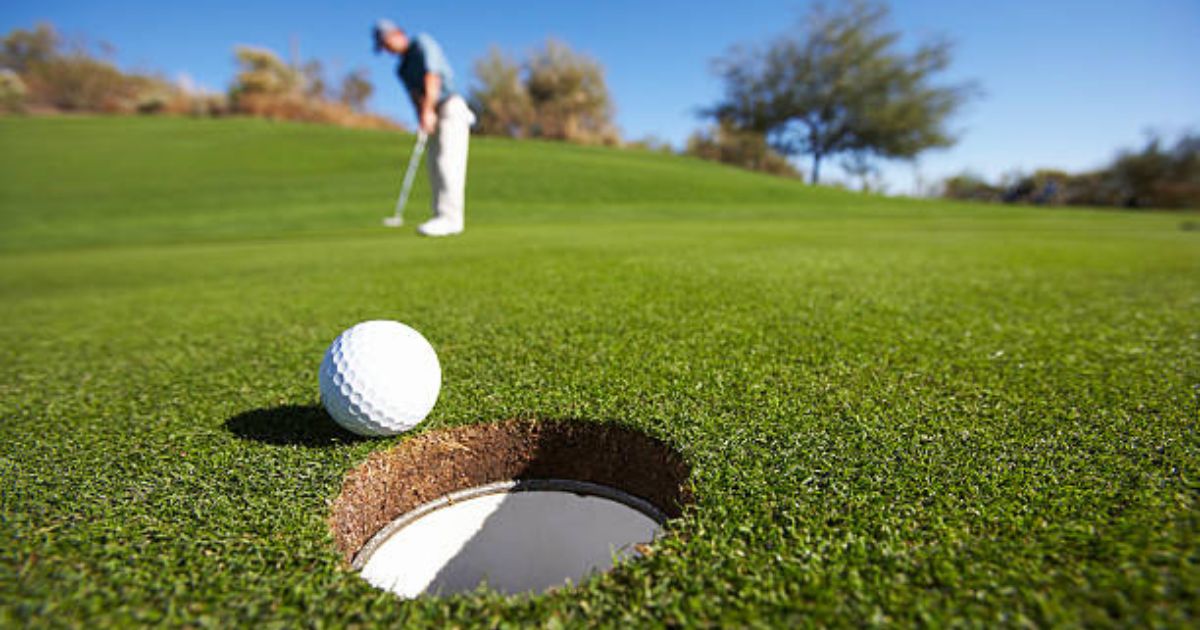Golf is a game rich in tradition and terminology, with each term holding a special significance. Among these terms, “birdie in golf” stands out as a delightful achievement for golfers of all levels. Explore the concept of a birdie, and uncover its importance in the sport.
Table of Contents
ToggleLearn what is a birdie in golf and how it’s achieved, along with tips, strategies, and the impact of birdies in professional golf. This comprehensive guide covers everything from scoring basics to improving your game for more birdies.
The Birdie in Golf
So, what exactly is a birdie? In simple terms, a birdie occurs when a golfer completes a hole in one stroke fewer than the designated par. For example, if a hole is a par 4, completing it in three strokes is considered a birdie.
The term “birdie” is believed to have originated in the early 20th century, with the word “bird” being slang for something excellent or outstanding. Hence, achieving a birdie is seen as an excellent accomplishment in golf.
The Basics of Golf Scoring
To fully appreciate what a birdie is, it’s essential to understand the basic scoring system in golf. At the heart of this system is the concept of “par,” which represents the standard number of strokes a skilled golfer is expected to make to complete a hole. Depending on the course and its difficulty, par can range from 3 to 5 strokes per hole.

Golfers often use terms like “bogey,” “birdie,” and “eagle” to describe their performance relative to par. A bogey is one stroke over par, a birdie is one stroke under par, and an eagle is two strokes under par. Each of these terms helps quantify how well or poorly a golfer performed on a particular hole.
How a Birdie in golf is Scored
A birdie is scored when a player takes one stroke less than par on a hole. For instance, if a hole’s par is 5, scoring a birdie means completing the hole in 4 strokes. Birdies can occur on any hole, regardless of its par value, making them a versatile and exciting aspect of the game.
The Strategy Behind Scoring a Birdie
Achieving a birdie often requires a combination of skill, strategy, and a bit of luck. Key elements include:
- Course Management: Understanding the layout of the course and planning each shot carefully can set up birdie opportunities.
- Club Selection: Choosing the right club for each shot is crucial, especially when aiming for the green.
- Reading Greens: Accurate reading of the green’s slope and speed can make or break a birdie putt.
Birdies in Professional Golf
In professional golf, birdies are celebrated moments that can shift the momentum of a match. Some of the most iconic moments in golf history have been marked by crucial birdies.
Legendary golfers like Tiger Woods and Phil Mickelson are known for their ability to make birdies under pressure, often turning the tide in their favor.
Click to read about, What is a Golden Slam in tennis.
The Psychological Impact of a Birdie
Scoring a birdie can have a significant psychological impact on a golfer. It boosts confidence and can create a positive momentum that carries through subsequent holes.
Conversely, missing a birdie opportunity can sometimes be demoralizing, highlighting the mental challenges of the game.
Birdie vs. Other Scores
- Birdie vs. Par: A birdie is one stroke under par, while par is the standard score.
- Birdie vs. Bogey: A birdie is one stroke under par, whereas a bogey is one stroke over par.
- Birdie vs. Eagle: A birdie is one stroke under par, and an eagle is two strokes under par.
How to Improve Your Chances of Scoring a Birdie
To increase your chances of scoring a birdie, focus on:
- Practice Techniques: Regular practice, particularly on approach shots and putting, can improve accuracy.
- Importance of Short Game: A strong short game is crucial for setting up birdie putts.
- Mental Preparation: Staying calm and focused can help you execute shots under pressure.

Common Mistakes to Avoid When Going for a Birdie
While aiming for a birdie, it’s easy to make mistakes such as:
- Overestimating Distance: Misjudging distances can lead to poor shot placement.
- Poor Course Management: Failing to plan shots can result in missed opportunities.
Birdie in Different Golf Formats
Birdies can have different implications depending on the format of play:
- Stroke Play: Every stroke counts, so birdies can make a significant difference in the final score.
- Match Play: Birdies can win holes and shift momentum in head-to-head competition.
- Scramble and Best Ball: Birdies contribute to the team’s overall score, making them valuable in team formats.
The Cultural Significance of Birdies in Golf
Birdies hold a special place in golf culture. They are often celebrated with cheers and fist pumps and can become highlights of a player’s career. In media and pop culture, birdies are often depicted as pivotal moments in fictional and real-life golf narratives.
Conclusion
In golf, a birdie is more than just a score; it’s a testament to skill, strategy, and execution. Whether you’re a novice or a seasoned pro, the pursuit of birdies adds excitement and challenge to the game. So, next time you’re on the course, aim for that birdie and savor the satisfaction of achieving it.
FAQ,s
What is considered a birdie in golf?
A birdie in golf is when a player completes a hole in one fewer stroke than the par for that hole, resulting in a score of one under par. It’s considered a good score and is often celebrated by golfers.
Why is it called birdie?
The term “birdie” in golf originated from early 1900s American slang where “bird” meant something excellent or wonderful.
Since scoring one under par on a hole was considered exceptional, it was fittingly dubbed a “birdie.”
What is a bogey in golf?
A bogey in golf is when a player takes one more stroke than the par of a hole.
1 For instance, if a hole is a par 4 and you need 5 strokes to complete it, you’ve made a bogey. 2 It’s considered a standard score, but golfers aim to do better.
What is a beginner golfer called?
A beginner golfer is often referred to as a “hacker” or a “newbie.” These terms are used lightheartedly and don’t carry any negative connotations in the golfing world.







